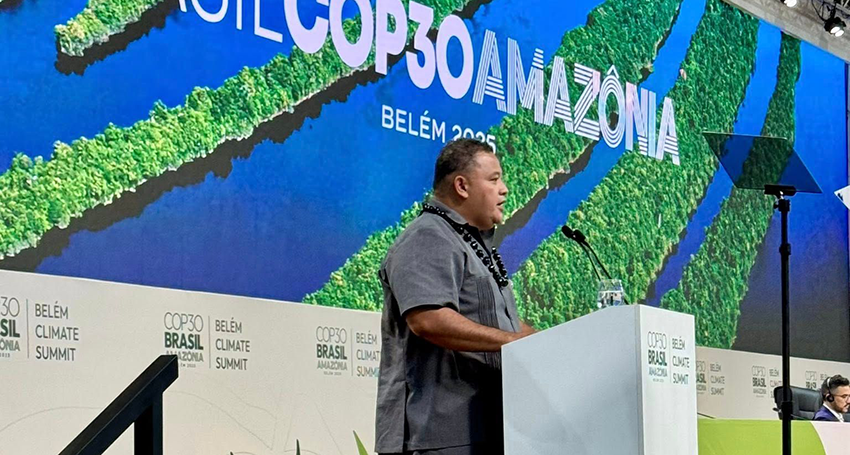Dr Maina Vakafua Talia’s presence at COP30 in Belém stands out for its clarity and refusal to accommodate climate denial. As Tuvalu’s climate minister, on 30 September he used the summit to directly challenge the Trump administration’s rejection of climate science and its retreat from multilateral commitments. His criticism was not framed as diplomacy gone tense but as a matter of integrity and responsibility.
Talia described the administration’s actions as a “shameful disregard for the rest of the world,” a comment that contrasted sharply with the quiet caution many delegations have adopted in response to U.S. policy shifts. His concern was practical and immediate: the decision to cut climate adaptation funding directly affects Tuvalu, a nation already living with rising seas, salt intrusion, and the threat of community displacement.
A significant part of Talia’s approach comes from his grounding in theology. He studied at United Theological College in Sydney before completing his PhD under Rev. Dr Clive Pearson, who is known for his work at the intersection of theology and public life. This formation shaped the way he understands collective responsibility, the value of community, and the ethical obligations nations have when their choices impact vulnerable neighbours.
During his years working as a climate change officer for the Ekalesia Kelisiano Tuvalu, he often framed climate issues as questions of justice rather than only environmental management. That perspective has carried into his political leadership. At COP30, he drew on principles familiar within Pacific theology, where care for land and ocean is tied to identity, stewardship and intergenerational duty. For Talia, rising seas are not an abstraction but a direct challenge to cultural continuity.
His theological grounding also informs how he interprets international law. When he referenced the obligation of states to prevent harm to the climate system, he spoke not only from legal precedent but from an ethical framework that expects nations to act in good faith when their choices have global consequences. That expectation extends to powerful states that choose not to participate fully in climate agreements.
Talia’s intervention at COP30 highlights a core tension: Tuvalu does not have the luxury of political posturing. He has made it clear that climate denial — whether through rhetoric or policy inaction — places small island states at risk. By naming this publicly, he refuses to let the summit sidestep the lived experience of frontline nations.
His voice brings together policy, culture, and belief in a way that sharpens the focus of the conference. He does not frame Tuvalu as a victim but as a community insisting on its right to continue. His theological training has given him a language of responsibility, accountability and shared humanity, all of which sit beneath his critique of climate denial. His message to COP30 is that decisions made by large nations shape the future of smaller ones, and that leadership requires honesty about that reality.





